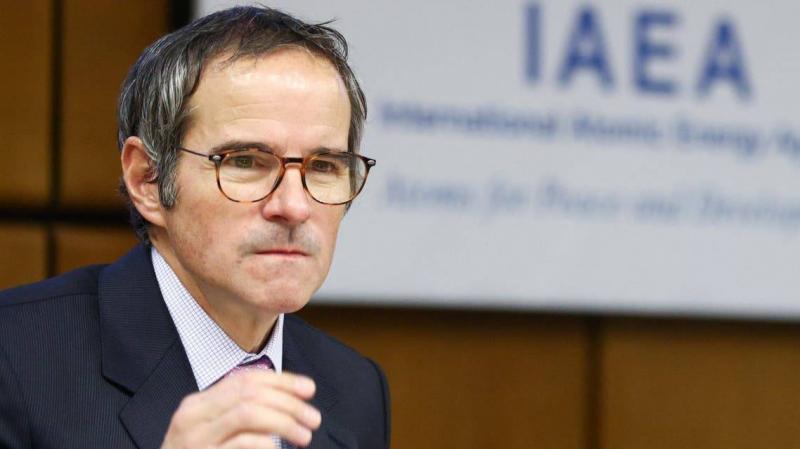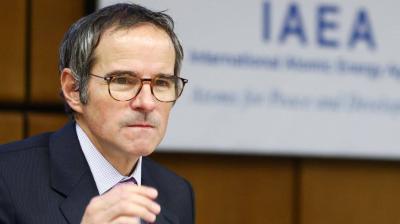Under the title "Atomic Agency Warns Iran: Current Situation Cannot Continue," Al-Arabiya reported that as Tehran maintains its stance of refusing to hand over footage from surveillance cameras at its nuclear sites to the International Atomic Energy Agency (IAEA), IAEA Director General Rafael Grossi has reiterated his warning about the dangers of this behavior and its international implications, stating that international inspectors have faced difficult conditions during their work in Iran. He likened his agency's efforts to monitor the Iranian nuclear program to flying through dense clouds, warning that this situation cannot last much longer. He added, according to the Associated Press on Wednesday, "We are flying amidst severe clouds... we may continue in this situation temporarily, but not for a long period."
"Challenging Moments"
Speaking on the sidelines of the UN climate summit in Glasgow, he said, "This will be in their interest as well as the international community's, because if they seriously intend to continue their nuclear program for civilian purposes, they need to provide guarantees for that." He also addressed the inspections in Iran, stating, "We have witnessed an increase in security measures around their facilities, which has led our inspectors to face challenging moments at times." He added, without going into details, "We are verifying that very carefully. I will not risk placing the agency's inspectors in danger." However, he expressed hope for a soon visit to Tehran "for direct and high-level talks," which could open the door for the agency to regain its ability to understand what Iran is currently doing.
Curtailing Nuclear Activity… However
It is noteworthy that the IAEA was mandated to monitor the 2015 agreement, known as the Joint Comprehensive Plan of Action, aimed at curbing Iranian nuclear activity in exchange for lifting sanctions. However, the United States withdrew from the agreement during the presidency of Donald Trump in 2018 and reimposed many sanctions on Iran. In turn, Iranian authorities began to renege on the agreement's terms, particularly those that restricted its nuclear activity. They also took a hardline stance regarding international inspections, and the relationship with the agency has seen some back and forth over the past months, before both sides reached an agreement allowing the agency to maintain the surveillance cameras installed at nuclear facilities. However, it was not clear regarding the access to the footage from those cameras or the entry of inspectors to all facilities.
Since February 2021, IAEA inspectors have been unable to obtain surveillance footage from the nuclear sites or electronic monitoring devices for enrichment. Amid these obstacles, inspections of nuclear facilities have become problematic as Tehran continues to develop new centrifuge machines and enrich uranium to purities closer to those required for nuclear weapons. Western countries fear Iran is developing skills and knowledge to manufacture a nuclear bomb, representing a point of no return!




